Page 157 • (2,202 results in 0.025 seconds)
-
. Overall, Tingelstad residents enjoy the diversity and unique qualities of their home. “I like living in Tingelstad,” Gunter said, “It’s close to the gym so I can get to cheer practice, and it’s not too far from the UC. It works perfectly for me.” Article by PLU student Brielle Erickson. Photo by University Photographer Jordan Hartman. Read Previous Present for historical moment Read Next Making strides at a feverish pace COMMENTS*Note: All comments are moderated If the comments don't appear for you
-
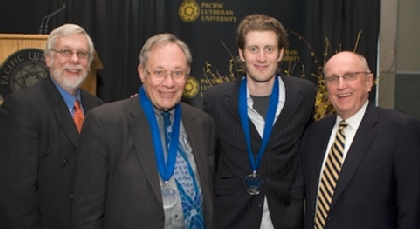
Program International to ‘Promote peace through mutual respect, understanding and cooperation – one individual, one country at a time,’” Sobania said. He did so, while serving as the Chair of the City of Seattle’s Sister City Committee and serving for three years on the national board of Sister Cities International. He continues that work now as president of the Trade Development Alliance of Greater Seattle. Read Previous Making a difference Read Next Power off – Competition on! COMMENTS*Note: All
-
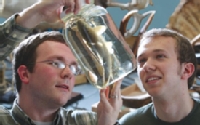
. “We are making a deliberate effort to give the introductory biology courses a more welcoming, personal experience that students expect from a place like PLU,” said Egge. For instance, the two profs break down Bio 126 to smaller groups. Students have the same professor for their lab that they do for lecture. This way, even though multiple profs teach the courses, a given student will only interact with one professor. Egge estimates he sees his students four times a week for a total of about six
-
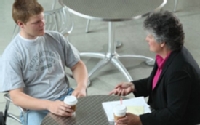
very impressed with the quality of the ideas that the students develop and how realistic their business plans are.” According to Jim Brock, dean of the School of Business, it is the way all the faculty members conduct their classes. Professors focus on making sure students have every opportunity to get important hands-on experience. “We encourage students to be active learners, taking advantage of the opportunities we work to put before them, including participating in our mentor program and
-
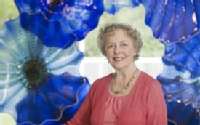
Music under David Robbins, who remains the head of the department. Kopta taught private voice lessons at PLU for 11 years. She also taught in her private voice studio while also serving as a choral director. Kopta left PLU in the spring of 2007, but not without making a positive impact on the lives of students of all ages, all levels of ability and all walks of life. Her teaching career was complimented by her career in performing. Kopta spent many years in Seattle and Rome. She was selected to be
-
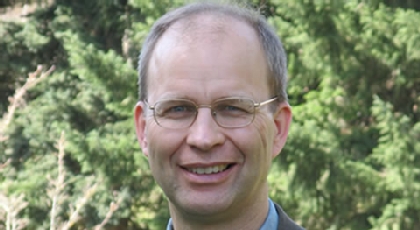
Work: 1931-1932, volume 11 of DBWE, scheduled for publication in 2011. The PLU graduate currently chairs the Environmental Ministries Committee of the Ecumenical Ministries of Oregon. Read Previous Making the community safer Read Next The impact of eating COMMENTS*Note: All comments are moderated If the comments don't appear for you, you might have ad blocker enabled or are currently browsing in a "private" window. LATEST POSTS A family with a “Bjug” legacy of giving and service September 27, 2024
-
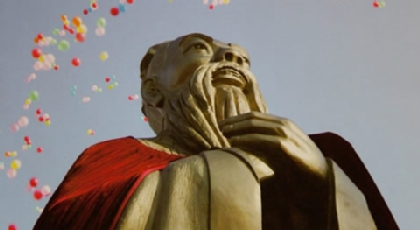
November 10, 2010 Reviving Confucianism By Chris Albert As part of the PLU Chinese Studies Program lecture series, Daniel A. Bell will visit campus to examine the revival of Confucianism as the moral foundation for political rule in China. Confucianism is making a comeback in Chinese debate about moral and political foundation. Below is a video with the last lecturer in the series, journalist Martin Jacques. “We stand at a moment in history where we can decide to be friendly competitors or
-
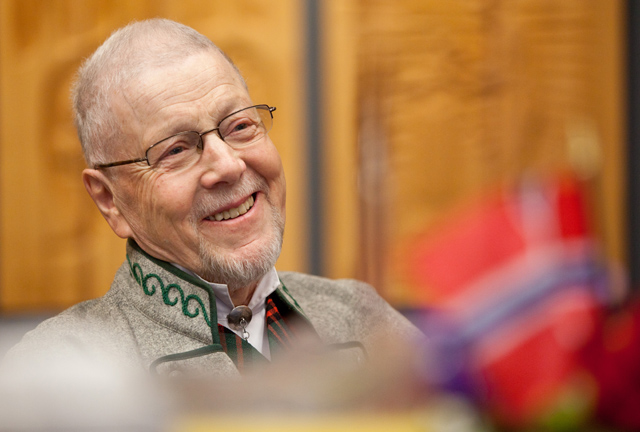
altogether. “That’s why I’m interested in making sure that there is always a professorship in Norwegian studies at PLU,” he said. He then turned to the crowd and issued a challenge- on the fourth annual Syttende Mai celebration, how about an announcement for an endowed chair? Only $1 million more to go, he said. “We’re half-way there,” he laughed. Currently PLU has three endowed chairs: The Kurt Mayer Chair in Holocaust Studies, the Benson Family Chair in Business and Economic History and the Jolita
-
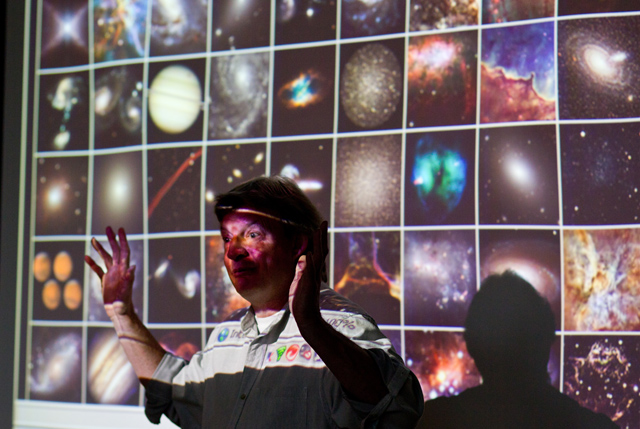
the telescope began in the 1940s. In 1990, it was finally launched into space. Once in orbit it was discovered that its 2.4-meter lens was a fraction off, making the first images it captured slightly blurry. After a NASA repair mission effectively gave the telescope corrective contact lenses, images jumped back into focus. “Hubble has brought so much insight,” Rush said, adding that at first, scientists weren’t sure what they’d see. What they did see was astonishing. By using the Hubble it was
-

undergrad degree in geosciences, will be the only new member of the team that includes researchers from the University of Washington, the University of Maine and Berkeley Geochronology Center. And of course, a mountaineering expert. The trip is funded through a National Science Foundation grant secured by Todd, who is making her fourth trip back to the Antarctic. It never gets old, she said. “There is always something new to see, at a new location,” she said. Todd and Hegland obviously can’t wait to get
Do you have any feedback for us? If so, feel free to use our Feedback Form.


